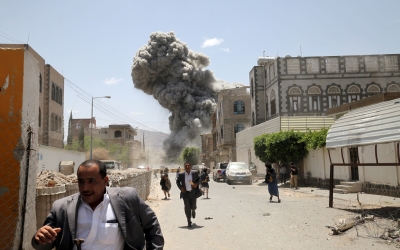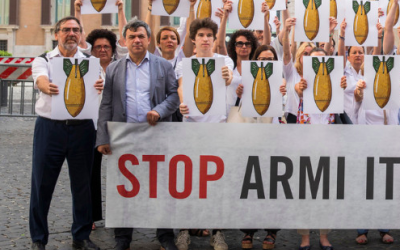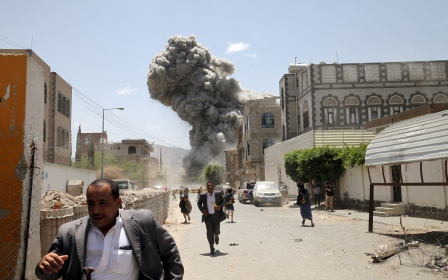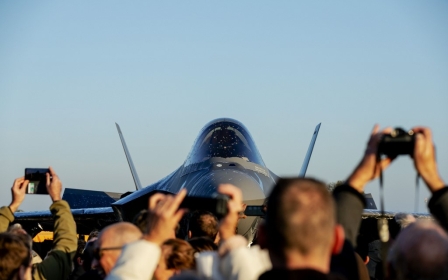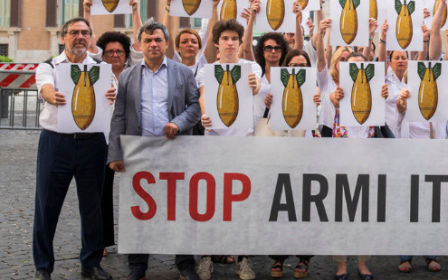UK urged to follow US in ending support for Saudi-led bombing of Yemen
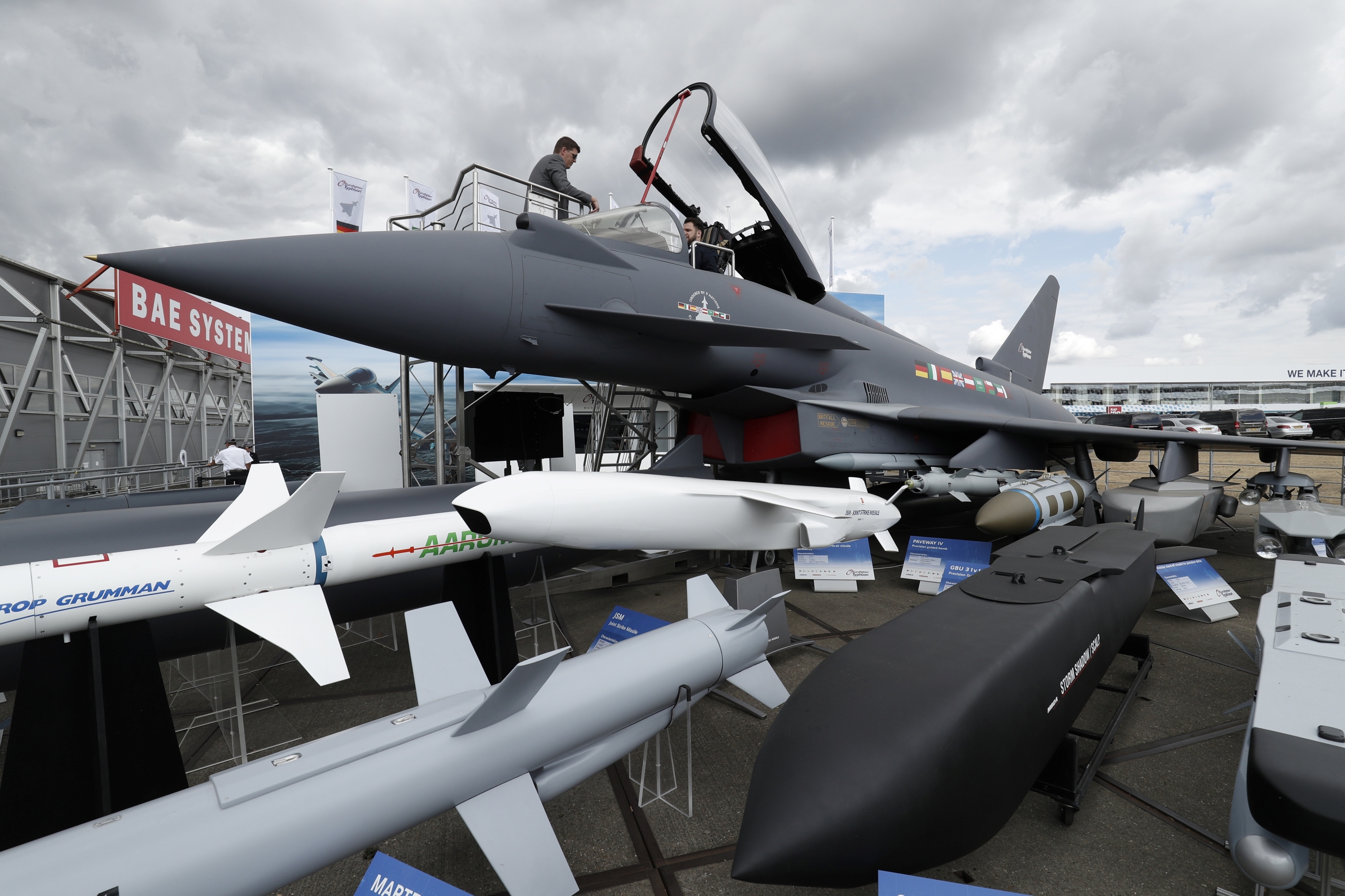
The UK government is coming under increasing pressure to end its support for the Saudi-led coalition's war in Yemen, after US President Joe Biden said Washington would no longer back the conflict.
In his first major foreign policy speech on Thursday, Biden said: "This war has to end. And to underscore our commitment, we're ending all American support for offensive operations in the war in Yemen, including relevant arm sales."
The UK has been unyielding in its support of Saudi Arabia and its war on Yemen, which it has been bombing since 2015 on behalf of the Yemeni government in its fight against the Houthi movement.
The British government is providing technical support for attacks, has deployed troops to defend Saudi oil fields, and last year reinstated arms sales to the kingdom after a court ordered a pause on humanitarian grounds.
In a statement released on Friday, Sarah Waldron of the group Campaign Against Arms Trade (CAAT) said: "The US Government is the biggest arms dealer in the world, so this could be an important step towards ending this terrible war.
"It also puts the spotlight firmly on to the UK government and companies that have armed, supported and enabled the brutal bombardment."
Thousands of civilians killed
CAAT said there was a wealth of evidence to show that civilians are suffering disproportionately as a consequence of air strikes by the Saudi-led coalition.
"Saudi-led forces have killed thousands of civilians and bombed schools, hospitals and homes," said Waldron.
"No matter how dire the crisis has become, they have been able to count on the uncritical political and military support of the UK government.
"That support must end, and so must the arms sales that have done so much damage."
According to CAAT, the UK has licensed at least £5.4bn ($7.4bn) worth of arms to Saudi Arabia since Riyadh entered the conflict in March 2015.
The sales include £2.7bn ($3.7bn) worth of aircraft, helicopters and drones; as well as £2.5bn ($3.4bn) worth of grenades, bombs, missiles and countermeasures.
The organisation says that in reality the figures are likely to be a great deal higher, with most bombs and missiles being licensed via the country's opaque and secretive open licence system.
The UK’s biggest arms company, BAE Systems, has made £15bn ($20.5bn) in revenue from services and sales to Saudi Arabia since 2015, CAAT said.
'UK worryingly out of step'
There were calls on Friday from both opposition and government members for the UK to end its support of the conflict.
In a statement, Labour’s shadow foreign secretary Lisa Nandy said: "The government's support for the Saudi campaign in Yemen is not only morally wrong but increasingly leaves Britain isolated on the world stage.
“President Biden’s decision to end US support for operations in Yemen shows just how far global opinion has shifted and leaves the UK worryingly out of step with our allies.
“Ministers must now take long overdue action to stop arms sales to Saudi Arabia and end the UK’s role in a conflict which has caused the world’s worst humanitarian crisis."
Conservative MP and Defence Select Committee Chair Tobias Ellwood called on the UK to show leadership by committing troops to a peacekeeping mission in Yemen and ending support to the Saudi-led coalition.
“A fresh strategy to resolve the seven year civil war is well overdue,” he wrote on Twitter.
Global day of action
Yemen's conflict broke out in late 2014 when Houthi fighters seized the capital Sanaa, prompting Saudi Arabia and the United Arab Emirates to assemble a Western-backed military coalition to try to restore the government of President Abd Rabbo Mansour Hadi.
Last year, a panel of independent experts monitoring the conflict for the United Nations investigated possible war crimes by the combatants, including Saudi Arabia.
Countries identified in the report as supplying arms included the US, Britain, France and Canada.
The German government decided in March 2018 to ban arms exports to parties involved in the conflict in Yemen, including Saudi Arabia.
The ban was effectively enforced following the killing of Saudi journalist and Middle East Eye columnist Jamal Khashoggi inside the Saudi consulate in Istanbul in late 2018.
Italy permanently ended arms sales to the UAE and Saudi Arabia last week, following an 18-month temporary suspension, blocking the sale of around 12,700 missiles to Riyadh, part of a contract signed in 2016 worth nearly £350m ($480m).
Last month, activists in the Canadian province of Ontario staged a protest at the site of a transport company they say is involved in transporting Canadian-made light armoured vehicles to Saudi Arabia.
Approximately 30 demonstrators blocked Paddock Transport International trucks in Hamilton, a city about 70km west of Toronto, for a few hours as part of a global day of action against the ongoing war.
Middle East Eye delivers independent and unrivalled coverage and analysis of the Middle East, North Africa and beyond. To learn more about republishing this content and the associated fees, please fill out this form. More about MEE can be found here.


